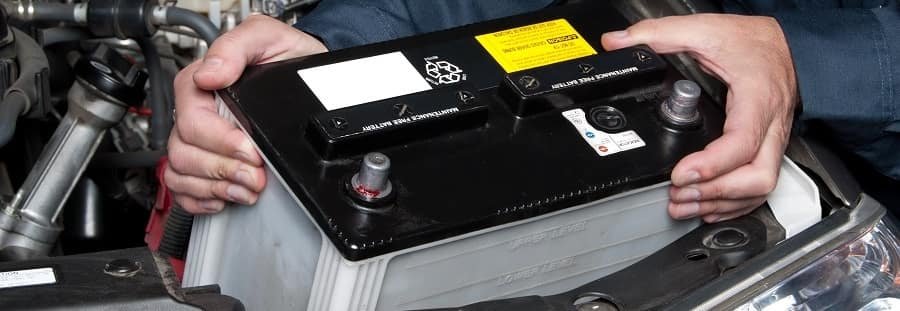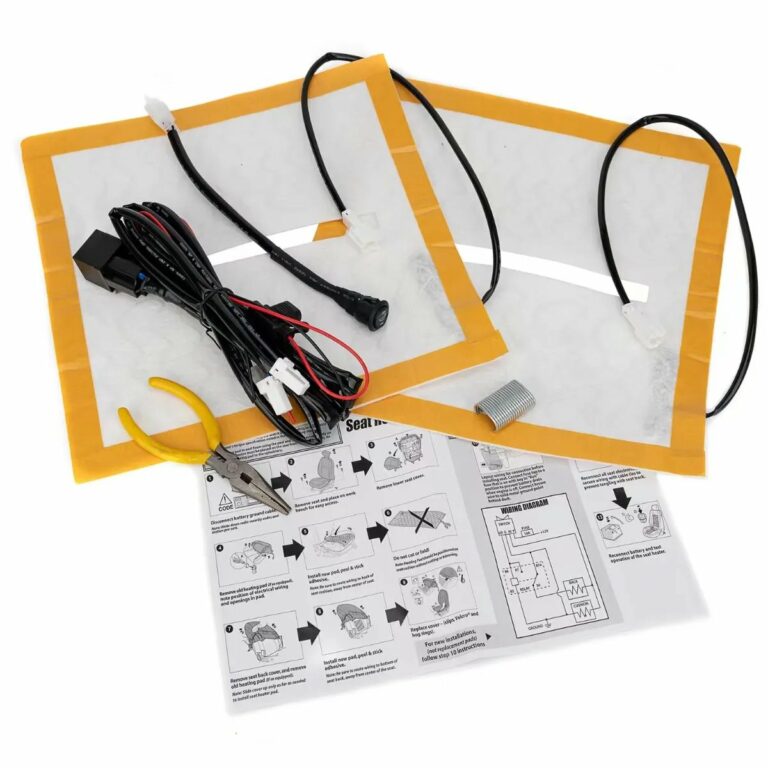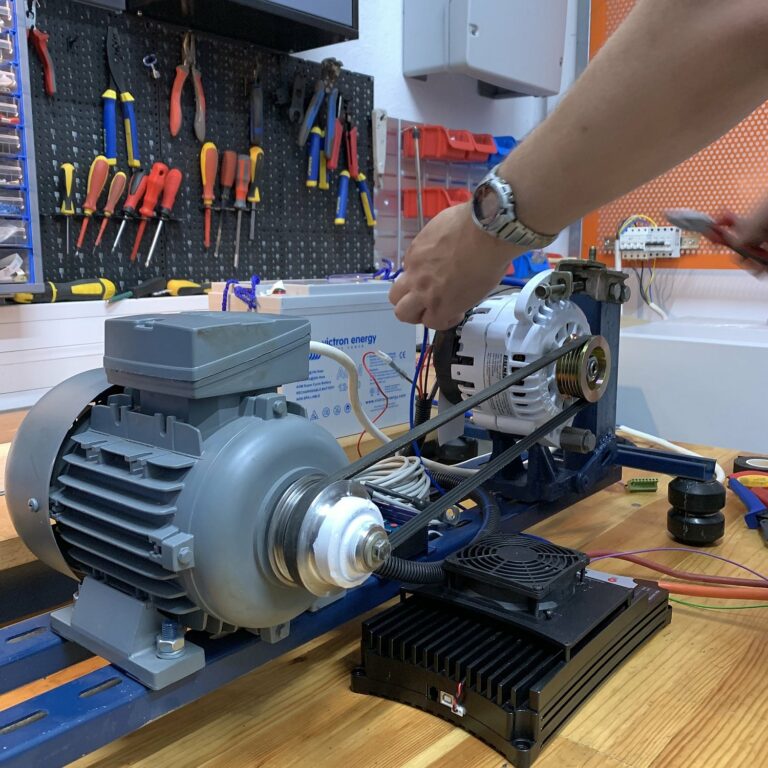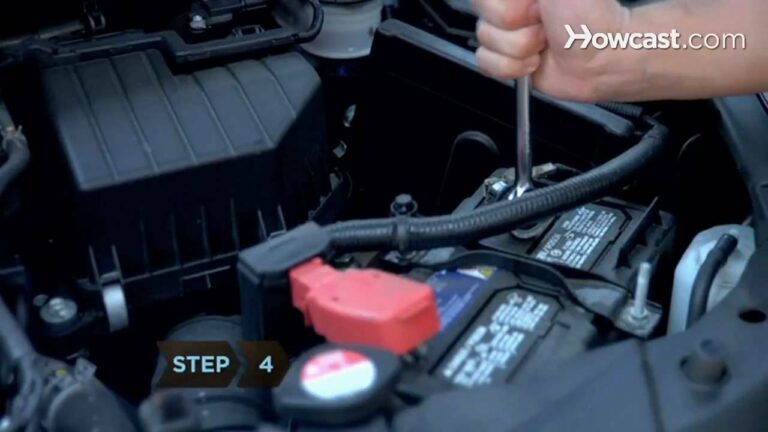The Lifespan Of A Car Battery: How Long Does A Car Battery Last?
How long does a car battery last? The answer to this common question depends on a multitude of factors. From weather conditions and driving habits to the age and quality of the battery, several variables come into play.
But fear not, in this article, we’ll dive into the ins and outs of car batteries to give you a comprehensive understanding of their lifespan. So, let’s get right into it and shed some light on an essential component that keeps your vehicle running smoothly.
How long does a car battery last?
Car batteries are essential for vehicles, providing power to start the engine and operate electrical systems. Understanding their lifespan and the factors that affect it is important for car owners. In this article, we will discuss car battery life and offer insights to extend its lifespan.
The Average Lifespan of a Car Battery:
The typical lifespan of a car battery ranges between three and five years. However, this can vary depending on several factors, including the type of battery, usage patterns, weather conditions, maintenance practices, and overall vehicle electrical demands. Let’s examine each of these factors in more detail.
Type of Battery
Car batteries come in different types, including lead-acid, absorbed glass mats (AGM), and lithium-ion. Lead-acid batteries are the most common and affordable option, while AGM and lithium-ion batteries offer longer lifespans but at a higher cost.
On average, lead-acid batteries last around three to five years, AGM batteries can last up to six years, and lithium-ion batteries can have a lifespan of up to ten years.
Usage Patterns
How you use your vehicle can significantly impact the lifespan of your car battery. Frequent short trips and constant engine on-off cycles can strain the battery and shorten its life. On the other hand, regular long drives allow the alternator to recharge the battery fully, promoting a longer lifespan.
Weather Conditions
Extreme temperatures, both hot and cold, can affect the performance and longevity of car batteries. High temperatures can accelerate the chemical reactions within the battery, causing it to wear out faster. Similarly, extremely cold temperatures can reduce the battery’s ability to generate power, making it more challenging to start the engine. If you live in an area with extreme weather conditions, you may need to replace your battery more frequently.
Maintenance Practices
Proper battery maintenance plays a vital role in extending its lifespan. Regularly inspecting the battery for signs of corrosion, cleaning the terminals, and ensuring proper connections can help prevent premature battery failure. Additionally, keeping the battery charged, especially during periods of vehicle inactivity, can prevent sulfation, a common cause of battery deterioration.
Overall Vehicle Electrical Demands
The electrical demands of modern vehicles have significantly increased over the years. Features such as advanced infotainment systems, power windows, and heated seats can put additional strain on the battery. If your vehicle has numerous power-hungry accessories, the battery may drain faster, leading to a shorter lifespan.
Signs of a Dying Car Battery:
While car batteries can last several years, they typically exhibit signs of deterioration as they near the end of their lifespan. Recognizing these signs can help you avoid being stranded with a dead battery. Here are some common indicators that your car battery may be dying:
Slow Engine Crank
If you notice that your engine is slow to start or is struggling to crank, it may be a sign of a weak battery. The battery’s ability to deliver sufficient power to the starter motor decreases as it ages, resulting in sluggish engine starts.
Dimming Headlights
A fading or dimming of your headlights when idling or at low speeds can indicate an aging battery. As the battery becomes weaker, it may struggle to power all the electrical components, causing the lights to dim.
Frequent Jump Starts
Having to jump-start your vehicle frequently could be a sign of a failing battery. While occasional jump starts can happen due to other factors, such as leaving the lights on overnight, repeated jump-starts indicate an underlying battery issue.
Battery Leak or Swelling
Inspecting your battery for leaks or swelling is essential. Corrosion around the terminals or a bloated battery case could indicate underlying problems and potential battery failure.
Age of the Battery
If your battery is approaching the three to five-year mark, it is prudent to be proactive and consider a replacement, even if you haven’t experienced any obvious signs of battery degradation. It is always better to replace an aging battery before it fails unexpectedly.
Tips to Prolong the Life of Your Car Battery:
While car batteries have a finite lifespan, there are several steps you can take to maximize their longevity. By following these tips, you can reduce the likelihood of premature battery failure and save yourself the hassle and expense of frequent replacements.
Regular Inspections and Maintenance
Performing regular inspections of your battery can help identify early signs of corrosion or damage. Clean the battery terminals and connections using a mixture of baking soda and water to remove any build-up. Applying a thin layer of petroleum jelly to the terminals can help prevent corrosion.
Keep Your Battery Charged
If you have a vehicle that you don’t use regularly, it’s crucial to keep the battery charged to prevent sulfation — a process where lead sulfate crystals form and reduce the battery’s ability to hold a charge. Consider using a trickle charger or battery maintainer to keep your battery charged during periods of inactivity.
Avoid Frequent Short Trips
Frequent short trips, especially in cold weather, can strain the battery without providing sufficient time for the alternator to recharge it fully. Whenever possible, combine short trips or consider using alternative transportation methods for short journeys.
Limit Electrical Load
Reducing the electrical load on your battery can help extend its life. Avoid leaving accessories such as lights, stereos, or phone chargers plugged in when the vehicle is not running. Additionally, turning off all unnecessary electrical components when starting the engine can reduce the strain on the battery.
Protect Your Battery from Extreme Temperatures
Extreme temperatures can accelerate battery deterioration. If you live in an area with hot summers or cold winters, consider parking your vehicle in a garage or shaded area to protect the battery from extreme temperature fluctuations.
When to Replace Your Car Battery:
Despite your best efforts to prolong the life of your car battery, there will come a time when replacement is necessary. Here are a few instances when you should consider replacing your battery:
Age
As mentioned earlier, most car batteries last between three and five years. If your battery is approaching or has exceeded this timeframe, it’s wise to start considering a replacement, even if it appears to be functioning normally.
Frequent Jump-Starts
If you find yourself needing to jump-start your vehicle frequently, it’s a clear indication that your battery is struggling to hold a charge. Repeatedly relying on jump-starting can cause additional strain on the battery and potentially damage other electrical components.
Visible Signs of Battery Deterioration
Inspect your battery regularly for signs of corrosion, leaks, or swelling. If you notice any of these issues, it’s likely time to replace the battery.
Failed Load Test
A load test evaluates the battery’s ability to deliver power when subjected to a heavy load. If your battery fails this test, it indicates that it no longer can supply the necessary power, and a replacement is required.
How long should a car battery last?
Faqs for How Long Does A Car Battery Last:
The lifespan of a car battery varies depending on several factors, including usage patterns, weather conditions, and overall maintenance.
On average, a car battery typically lasts anywhere between 3 to 5 years. However, extreme temperatures, frequent short trips, and heavy electrical usage can shorten its lifespan.
Regularly checking and maintaining the battery, such as cleaning the terminals and ensuring proper charging, can help extend its life.
Additionally, opting for a high-quality battery and following the manufacturer’s recommendations can also contribute to a longer-lasting car battery.
Several factors can influence the lifespan of a car battery. Extreme temperatures, both hot and cold, can cause strain on the battery and impact its longevity.
Frequent short trips or constantly running electrical accessories without giving the battery enough time to charge can also decrease its lifespan.
Additionally, the quality of the battery itself, proper maintenance, and the overall driving and usage patterns can affect how long a car battery lasts.
There are a few signs that indicate your car battery may need to be replaced. If you experience difficulty starting your vehicle, dim headlights or interior lights, or if the battery is more than 3 years old, it may be time for a replacement.
Additionally, a swollen or leaking battery, corroded terminals, or a battery warning light on your dashboard are also indicators that your car battery might need to be replaced.
In some cases, you can recharge a dead car battery. Using a battery charger, you can attempt to restore the charge to the battery.
However, it’s important to note that not all dead batteries can be successfully recharged. If a battery has been discharged completely or has sulfation buildup, it may be beyond repair.
It’s also crucial to identify and address the underlying issue that caused the battery to die in the first place to prevent recurring problems.
To prolong the life of your car battery, there are a few steps you can take. Regularly inspect and clean the battery terminals to prevent corrosion, ensure proper charging by driving your vehicle regularly or using a battery tender, and limit the use of electrical accessories when the engine is not running.
It’s also advisable to avoid frequent short trips and extreme temperatures whenever possible, as they can place additional strain on the battery.
Final Thoughts
the lifespan of a car battery depends on various factors such as driving habits, weather conditions, and maintenance. On average, a car battery can last between 3 to 5 years. However, it’s important to regularly inspect and monitor the battery’s performance to ensure its longevity. Periodic maintenance, such as cleaning the terminals and checking the electrolyte levels, can help extend the battery’s lifespan.




